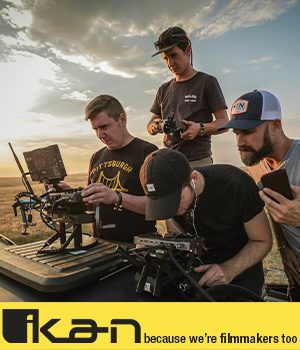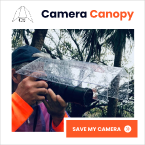- Forum
- General Discussion | Introductions | Off Topic Forum
- Photography General Discussion
- Why do you not shoot in RAW format?
Why do you not shoot in RAW format?
-
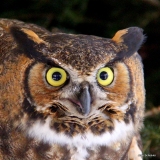
- Baydream
- Moderator
-
- Canoni/60D/70D/5DmkIII
- Followers: 388
- Posts: 11185
-
Points:
7278
Post #110867
Shoot, learn and share. It will make you a better photographer.
fineartamerica.com/profiles/john-g-schickler.html?tab=artwork
-
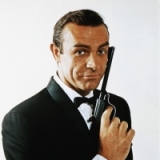
- Scotty
- Agent 007
- James Bond, PT mod.
- Followers: 1088
- Posts: 9870
-
Points:
14744
Post #110948
Baydream wrote: Speed. Photographing sports often requires rapid firing and processing RAW shots will slow your camera. Other times are "snapshots" where perfect exposure,etc. is not critical. RAW also takes up LOTS of memory on your card and your drives.
I concur. Really only sports.
When the last candle has been blown out
and the last glass of champagne has been drunk
All that you are left with are the memories and the images-David Cooke.
-

- KCook
- Photo Elder
-
- Canon EOS 50D and Olympus E-P5
- Followers: 1325
- Posts: 5410
-
Points:
32913
Post #110960
Kelly Cook
-

- Johnnie
- Photography Hooked
-
- Canon 7D, Canon 20D, Fujifilm Finepix S1000fd
- Followers: 146
- Posts: 887
-
Points:
2
Post #110964
-

- Stealthy Ninja
- Moderator
-
- Fuji X stuff and a 1DsIII for some reason
- Followers: 982
- Posts: 16300
-
Points:
6837
Post #110984
-

- KevinA65
- New Kid On The Block
-
- D60-Ir Only/ D5000 / D7000
- Followers: 17
- Posts: 23
-
Points:
0
Post #110985
Johnnie wrote: I photograph in both RAW and JPG. I find that JPG with the correct settings can give wonderful results. Get it right in camera and things will be fine. I shoot Raw for critical shoots where important detail is required.
Agree 100% Raw when needed ( Import. Photos), and Jpeg when just doing a walk and shoot,
-

- Stealthy Ninja
- Moderator
-
- Fuji X stuff and a 1DsIII for some reason
- Followers: 982
- Posts: 16300
-
Points:
6837
Post #110988
KevinA65 wrote:
Johnnie wrote: I photograph in both RAW and JPG. I find that JPG with the correct settings can give wonderful results. Get it right in camera and things will be fine. I shoot Raw for critical shoots where important detail is required.
Agree 100% Raw when needed ( Import. Photos), and Jpeg when just doing a walk and shoot,
I humbly disagree. With modern programs like Lightroom and the price of HDDs coming down and down there's no excuse for shooting jpeg only. Lightroom can be set up to handle your RAW files the way you like them (and does a better job than in camera, the NR and sharpening alone are better and you can use something like a colorchecker passport to do your own profiles for more accurate colour).
When you're doing casual shooting you never know when you'll see something worthy of RAW so to speak (like a sunset or something) so respectfully you should always shoot RAW unless your income depends on you getting the files out fast.
Johnnie didn't say he shoots jpeg only. He shoots RAW+Jpeg... RAW+Jpeg is fine if you want that, but never Jpeg on it's own (if you're serious about photography that is).
-
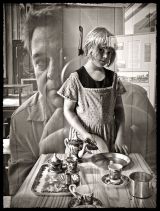
- Henry Peach
- Apprentice
-
- I currently use a 5DII or Sony Nex-3 most of the time.
- Followers: 50
- Posts: 2925
-
Points:
16
Post #111021
The reasons people don't shoot in raw are the same reasons people didn't develop their own film: they don't know how, it's too inconvenient, it takes too long, someone told them it was hard, etc...
Post #111027
-

- KCook
- Photo Elder
-
- Canon EOS 50D and Olympus E-P5
- Followers: 1325
- Posts: 5410
-
Points:
32913
-

- Stealthy Ninja
- Moderator
-
- Fuji X stuff and a 1DsIII for some reason
- Followers: 982
- Posts: 16300
-
Points:
6837
Post #111072
KCook wrote:
It's all a matter of degree. You could just as easily say that anybody shooting with less than 35mm Full Frame is not serious about photography.never Jpeg on it's own (if you're serious about photography that is)
Kelly
Don't mix categories. We're talking a file format that all good cameras can use and isn't that hard to work with. Even my Canon S95 can shoot in RAW.
It's there. If you're serious about photography you should use it (or learn to use it).
Unless of course you have a good reason not to (as stated above).
Free software (if your camera doesn't come with it:
ufraw.sourceforge.net/
Macs have iPhoto which should open RAW.
If not go here and it has some info on how to get it to work (look a few posts down):
discussions.apple.com/thread/2625299?start=0&tstart=0
Post #111093
That was a good point about the proof of ownership.
“Amateurs worry about equipment, professionals worry about money, masters worry about light, I just make pictures… ” ~ Vernon Trent
-

- Henry Peach
- Apprentice
-
- I currently use a 5DII or Sony Nex-3 most of the time.
- Followers: 50
- Posts: 2925
-
Points:
16
Post #111171
KCook wrote:
It's all a matter of degree. You could just as easily say that anybody shooting with less than 35mm Full Frame is not serious about photography.never Jpeg on it's own (if you're serious about photography that is)
Jpegs are like slides: what comes out of the camera is pretty much done cooking.
Raw are like negs: there are still plenty of processing options before the photo is finished.
They used to say "serious photographers shoot slides." Of course this was just as much BS as serious photographers shoot raw.
-

- Baydream
- Moderator
-
- Canoni/60D/70D/5DmkIII
- Followers: 388
- Posts: 11185
-
Points:
7278
Post #111181
It is a different subject but an excellent analogy. You can be serious about photography and not shoot RAW all the time.Stealthy Ninja wrote:
KCook wrote:
It's all a matter of degree. You could just as easily say that anybody shooting with less than 35mm Full Frame is not serious about photography.never Jpeg on it's own (if you're serious about photography that is)
Kelly
Don't mix categories. We're talking a file format that all good cameras can use and isn't that hard to work with. Even my Canon S95 can shoot in RAW.
It's there. If you're serious about photography you should use it (or learn to use it).
Unless of course you have a good reason not to (as stated above).
Free software (if your camera doesn't come with it:
ufraw.sourceforge.net/
Macs have iPhoto which should open RAW.
If not go here and it has some info on how to get it to work (look a few posts down):
discussions.apple.com/thread/2625299?start=0&tstart=0
Shoot, learn and share. It will make you a better photographer.
fineartamerica.com/profiles/john-g-schickler.html?tab=artwork
- Forum
- General Discussion | Introductions | Off Topic Forum
- Photography General Discussion
- Why do you not shoot in RAW format?
Latest Reviews
The Canon EOS R100 is an entry-level mirrorless camera introduced in 2023. But just because it’s an entry-level camera doesn’t mean it’s a bare-bones camera. Find out why in this review!
Nikon’s retro-looking Nikon Zfc is anything but retro. Under its classic body is a host of features and amenities that make it a worthwhile compact mirrorless camera for 2024.
The Canon EOS R50 is one of the newest R-system cameras from Canon. Is it worth your money? Find out all the details you need to know in this comprehensive review.
The Sony FE 70-200mm f/2.8 GM OSS II is Sony’s flagship mirrorless zoom lens. As such, it’s loaded with features and has a top-shelf build quality that makes it a top pick!
Latest Articles
Creating impactful photos of landscapes depends on many factors, not the least of which is your talent behind the lens. This guide explores other elements required for the best product.
The Canon EOS R100 is an entry-level mirrorless camera introduced in 2023. But just because it’s an entry-level camera doesn’t mean it’s a bare-bones camera. Find out why in this review!
Are you ready to upgrade your camera? Before buying new, you might consider the value of purchasing used gear to save money.
The Olympus OM-D E-M10 Mark IV is a micro four thirds camera released in 2020. It’s an entry-level system along with the OM-D E-M5 Mark III. Use this guide to determine which one is best for you!
Blue hour photography might not be as well known as golden hour photography, but it is every bit as good a time to create epic images of landscapes. Learn how in this quick tutorial!
Nikon’s retro-looking Nikon Zfc is anything but retro. Under its classic body is a host of features and amenities that make it a worthwhile compact mirrorless camera for 2024.
Moving from taking snapshots of your dog to creating beautiful images doesn’t have to be that difficult! Use the tips outlined in this dog photography guide, and you’ll get better results in no time.
Acrylic print photos are a beautiful way to display your favorite images. But they don’t come without some questions. Get all the answers you need about this medium in this guide!












